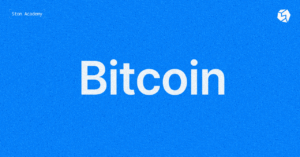-
Boost Farm APR: extra rewards for STON stakers in the STON/USDt V2 poolUp to 2× rewards in the STON/USDt V2 pool for STON stakers. Learn more about Boost Farm APR: how the multiplier works, eligibility rules, and what it means for DeFi on TON.
-
Self-custody for xStocks: holding traditional market exposure in your own walletMove beyond the broker model. This guide breaks down self-custody for xStocks and why holding traditional market exposure in your own wallet matters for your control.
-
How to create a token on TON (jetton) — a step-by-step guideLearn how to create your own Jetton on TON step by step. We prepared a complete guide: from wallet setup to deployment and revoking admin rights with essential legal cautions.
-
Risk management for mixed portfolios: crypto + xStocksCrypto + xStocks in one wallet: a practical guide to risk management. Learn the three-bucket model, stress scenarios, and rules for mixed portfolios.
-
Proof of reserves: why on-chain checks matter more than glossy decksLearn how Chainlink Proof of Reserve works for xStocks, what it verifies, and why on-chain checks beat marketing decks.
-
cbBTC on TON: bringing Bitcoin into TON ecosystemDiscover what cbBTC is, how it works, and what it enables for both Bitcoin holders and the TON community.
-
How tokenized securities are quietly replacing traditional brokersBrokers vs. tokenized securities: side by side. Discover how xStocks on STON.fi enable self-custody, instant settlement, and no account openings.
-
Why the tulip comparison fails to explain cryptocurrency market historyBeyond tulips. Why Railway Mania explains crypto's cycles and what lasting infrastructure means for you.
-
How xStocks actually work: from real-world asset to TON jettonExplore the secure, transparent pipeline that brings xStocks to your wallet. Discover how real stocks become TON jettons and why this DeFi bridge is key for your portfolio.








